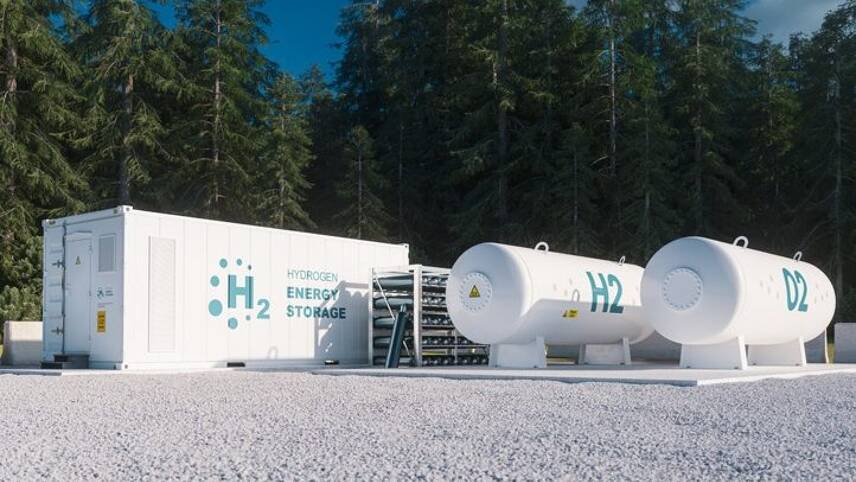Register for free and continue reading
Join our growing army of changemakers and get unlimited access to our premium content

Hydrogen produces no emissions at the point of use
The study, published this week in the 238th edition of the journal ‘Energy’, was conducted by researchers at the Fraunhofer Institute for Energy Economics and Energy System Technology (Fraunhofer IEE) in Kassel, Germany.
It assesses how a 20% hydrogen blend in domestic gas supplies, predominantly used for heating, would impact the carbon impact of the gas across its life-cycle. How this blend would impact prices is also considered. All conclusions are based on a scenario taking place within the EU, but the researchers have stated that findings would likely be similar for the UK.
On the former, the conclusion is that a blend of 20% hydrogen and 80% natural gas will deliver a 7% reduction in life-cycle emissions compared to using 100% natural gas, in domestic situations. This calculation assumes that the hydrogen used is not green – made using renewable electricity – as green hydrogen still accounts for only a fraction of global production.
While this saving is welcome, given the importance of decarbonising heating in the net-zero transition, the report emphasises that savings of up to 30% in lifecycle emissions could be generated by shifting to hydrogen in other sectors including heavy industry and long-distance transport.
“Mixing hydrogen into the gas grid leads to only limited reductions in greenhouse gas emissions,” wrote report co-author Jochen Bard. “Greater reductions could be achieved by saving this scarce resource for industrial purposes where grey hydrogen, made from fossil fuels, is already heavily polluting today.”
The report also warns that using hydrogen blends for heating, at present, will not be at price parity with simply using natural gas. It states that the average household in the EU would see its annual energy bills going up 16% if a 20% hydrogen blend was mandated.
Commentators have argued that, therefore, using hydrogen blending could undermine public confidence in the ability of policymakers and energy companies to deliver a just transition to net-zero. Wholesale gas and electricity prices in the UK are currently more than twice as high as they were in January 2021, largely due to discrepancies with demand and supply internationally, which have left importing nations paying more.
“The Government should take note of the findings of this important research, as, particularly during a gas price crisis, we should not risk escalating energy costs,” said the University of Cambridge’s professor of mechanical engineering David Cebon, also a founding member of the Hydrogen Science Coalition. “Hydrogen can be used in higher priority sectors with a greater impact on emissions.”
The report comes shortly after the Energy Networks Association (ENA), which represents the UK’s energy network operators, confirmed that its member gas firms will be ready to begin using 20% hydrogen, 80% natural gas blends for 2023. In making that announcement, the Association asked for Ministers to make policy changes to support the move, including increasing targets for domestic hydrogen productions and lifting current restrictions on the use of blends in public networks.
edie reached out to the ENA for a comment on the new research. The Association’s spokesperson said members will continue to make networks “net-zero ready”, including preparing for hydrogen blending. They also acknowledged that “a one-size-fits-all approach to decarbonising heating will not work across the UK’s diverse customer base”, with electric options such as heat pumps set to play a major role, as per the UK Government’s Heat and Buildings Strategy.
After the ENA published its research, the International Renewable Energy Agency (IRENA) published a major forecast on the growth of the hydrogen economy in the coming decades and how this will change current geopolitical relationships which are founded on oil and gas imports and exports.
IRENA also stated that hydrogen use should be prioritised in sectors that are hard to electrify, like shipping and steelmaking, over domestic heating.
Sarah George


Please login or Register to leave a comment.